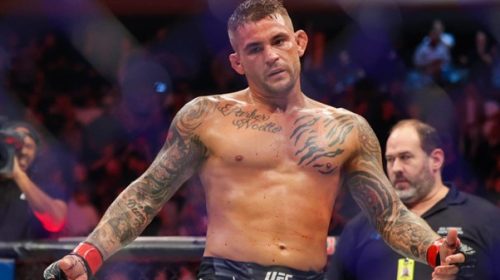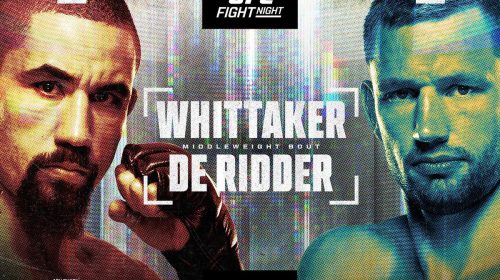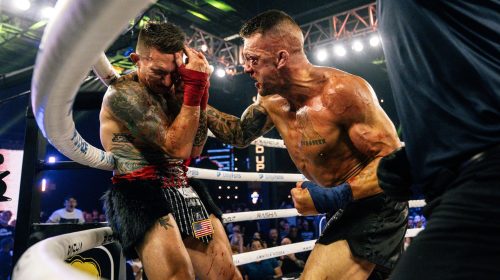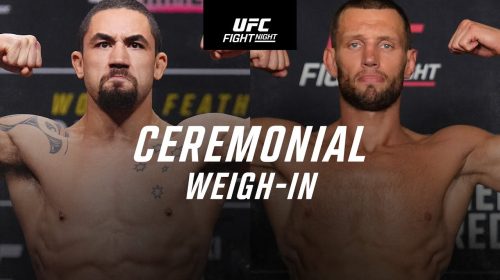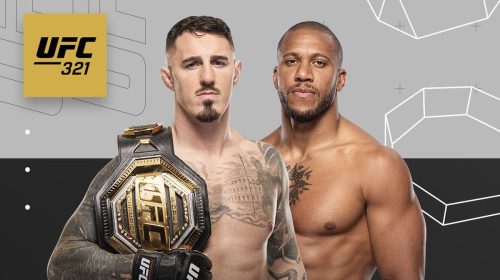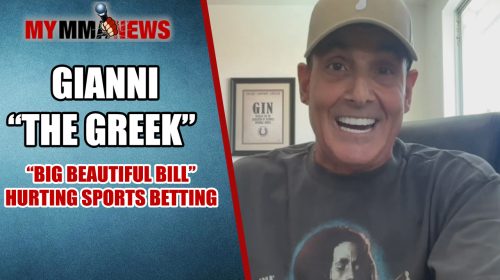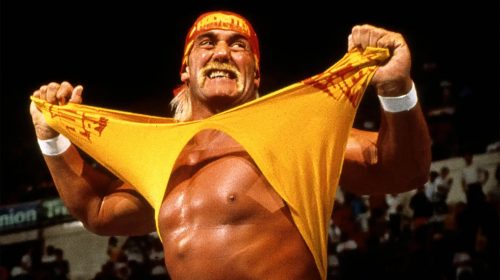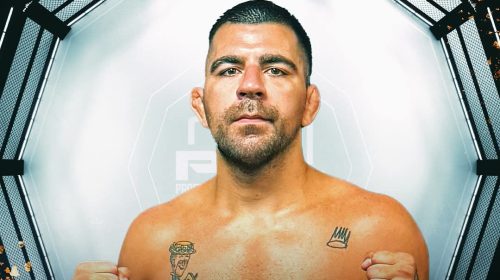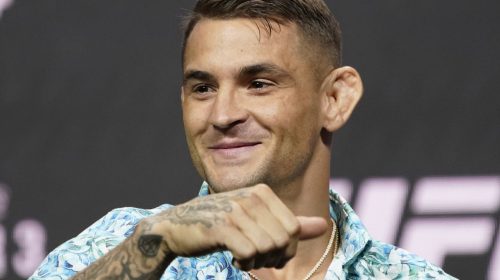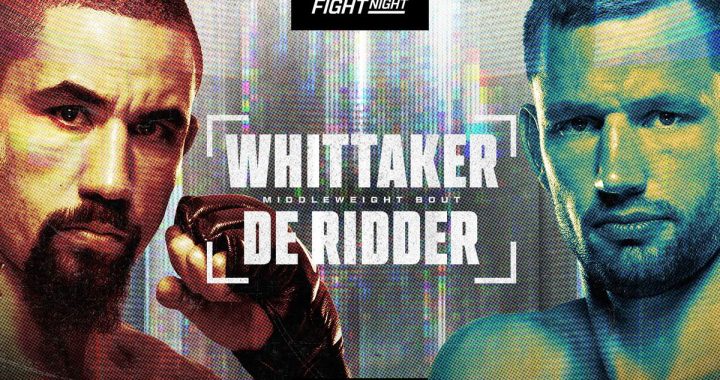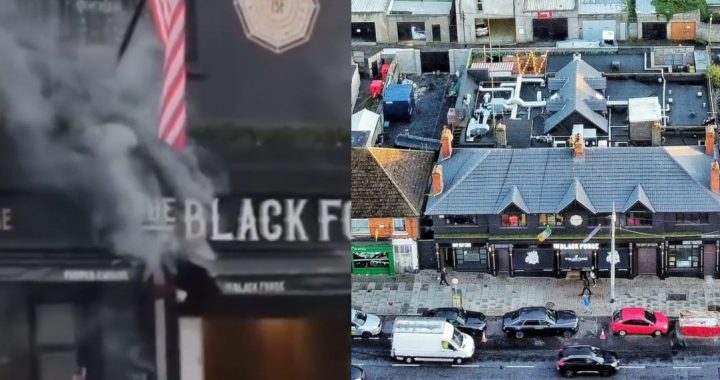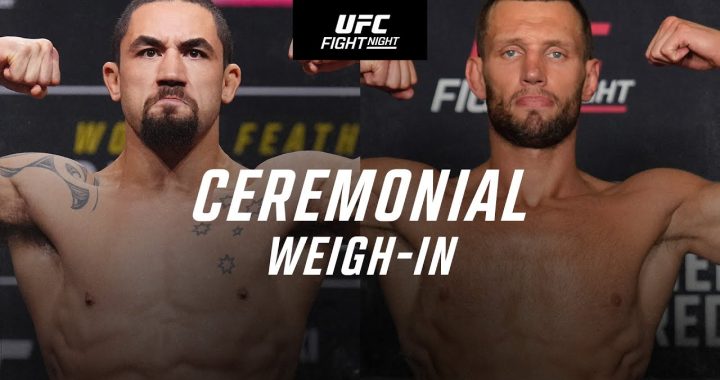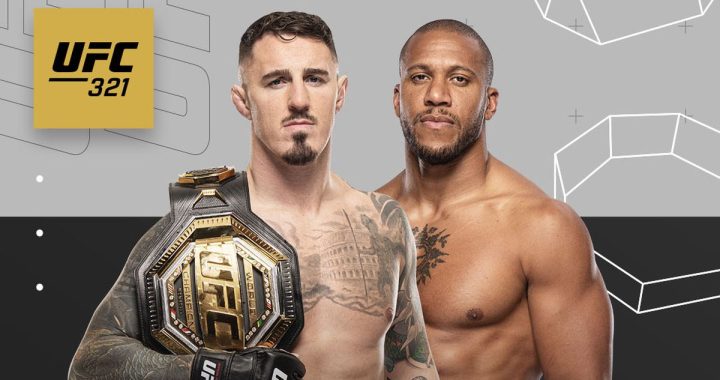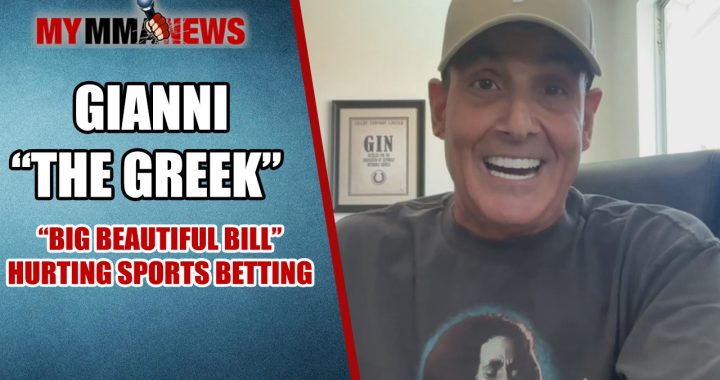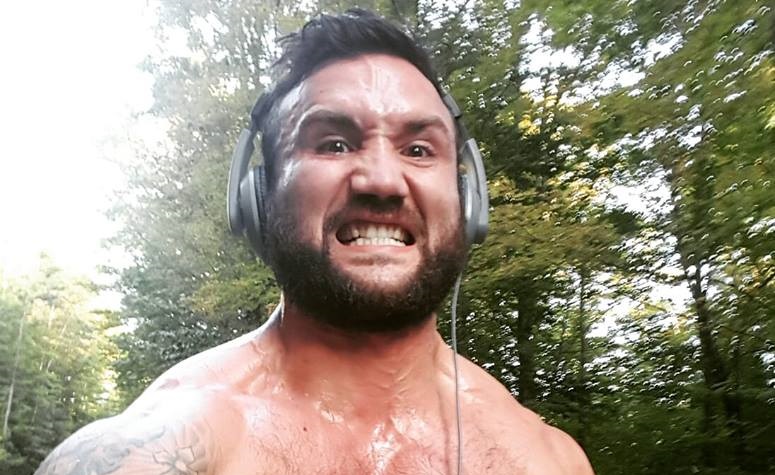
Ready for War: Sean Lally has his mind fixed firmly on victory ahead of Bellator 207
Sean Lally is a U.S. Army ranger-turned mixed martial artist who appears poised and ready to complete his next mission at Bellator 207 this Friday.
Lally (8-3), a knock-out artist, whose captivating fightstyle has credited him with the nickname: “The Unpredictable One,” seeks to get back to winning ways in his Oct. 12 clash with submission specialist, Kemran Lachinov (6-2) at Connecticut’s Mohegan Sun Arena.
The 27-year-old Boston-based brawler approaches fight week with clear eyes and a cool head, describing himself as “hyper-vigilant and very focused.” He is determined to impress in what will be his first fight since June, when he lost to Chris Curtis as part of Dana White’s Contender Series in Vegas.
“Beautiful violence,” declared Lally in the frame of a knowing smile, as part of his harrowing description of what to expect ahead of his much-anticipated return to the cage this week.
I recently spoke with Lally who provided a glimpse into his past, highlighted the influence that his military tenure has had on his fighting career and offered insight into his impromptu meeting with UFC President Dana White.
Below is an edited transcript of the conversation.
Q: Give us your elevator pitch. For those who don’t yet know, who is Sean Lally?
A: I’m 27 years old. I grew up in Northern New Hampshire. I’ve always sort of trained in martial arts. I started karate when I was young, transitioned to some boxing, and actually got into MMA when I was about 16. I had a couple of amateur fights during high school and my first pro fight at 18.
Q: That’s quite early. Do you think it was premature?
A: Yeah it was definitely premature. It was kind of a misjudgment on the part of me and my coaches. A guy got injured on a card, we were called up and offered a fight on like five days notice. I was young and stupid and was just a scrappy kid who likes to fight and they’re like ‘hey we’ll pay you a thousand bucks,’ so as a high school kid I’m like ‘hell yeah.’ So I did it. I was actually winning the fight until the end of the first round but I got caught in a choke. So I started my career 0-1. Then I went and joined the Army.
Q: So you joined the military, how did that come about?
A: Yeah so I decided to join the Army when I was 18. I have a lot of family members that are in the military and it was something that I always wanted to do when I was very young. As I got older, I kind of got away from it and started doing what everyone else was doing, like applying for colleges. But I wasn’t a great student and I knew it wasn’t really what I wanted to do. So one day I was like ‘You know what? Screw that I’m gonna join the Army.’ I called a recruiter and I signed up the next day.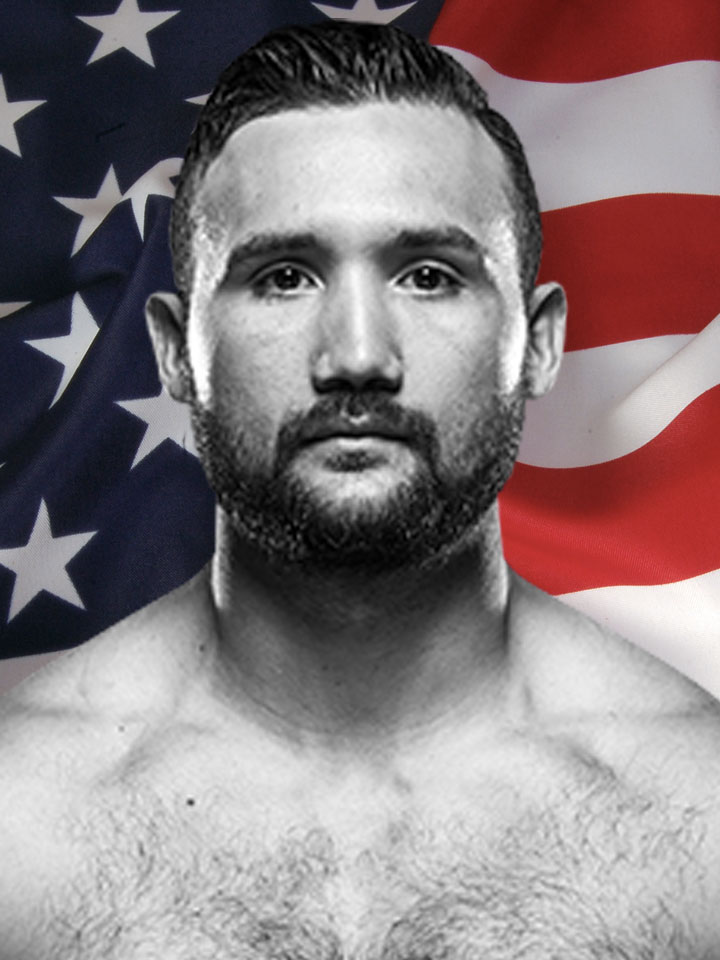
Q: I imagine that the regimented – and at times, the almost monastic – life of someone in the military mirrors that of a fighter, in some respects. Am I right?
A: Absolutely. I definitely got a huge mental lead in front of my opponents from my time in the military. So I went to RASP, the Ranger Assessment and Selection Program, which is one of the hardest selection courses in the military – there’s about a 30 percent graduation rate. So after graduating that course, I was an Army ranger. That’s where there are the highest standards of the military; it includes special operations, and everyone has to be on point.
Q: Isn’t that a lot of responsibility at such a young age?
A: Yeah I was very young. My friends were in college, meanwhile, I turned 20 in Afghanistan. You know, so, I became a man very quickly and I was surrounded by true leaders and true warriors and guys who instilled those types of principles in me. So I was very blessed to have that opportunity. As a combat unit, there was a lot of intense stuff going on, but overall it was a huge opportunity for myself.
Q: One thing you often hear fighters talk about is the concept of fear and how they’re ‘fearless’ when it comes to their opponents. I imagine that someone who has served in the Army understands fear better than most. Is that military experience something you can draw upon when you’re preparing for a fight?
A: Absolutely. I can really get into a certain type of zone, and a certain type of mindset that’s basically: complete the mission no matter the cost. So when I go into the cage, I’m not nervous but I’m hyper aware. So it’s more of like, I have to get in the cage and I have to hurt this man before he hurts me. So there’s a little of like – I wouldn’t call it anxiety, I wouldn’t even call it fear but – the hackles down the back (laughs), but I’ve found a way to be able to channel it. And you know, I’ve been in combat so, I mean a fist whizzing by your head’s a lot easier than a bullet whizzing by your head.
Q: How was life after leaving the military and what eventually led you back to fighting?
A: So it took me three years after leaving the military before I got back into MMA. I moved around a bit, stayed with buddies, partied, you know. But that got old – I was partying a little too much, and I was without direction. I ended up moving down to Cape Cod and I found out about this MMA gym there and I’ve been working with some of those same coaches, still to this day. I think about five months after being back training, I had my first fight.
Q: So would you say you owe a lot of your early success to that time spent training in Cape Cod?
A: Absolutely. One of my main coaches was Juliano Coutinho. He owns a gym called Juniko in Hyannis, Mass. He was one of my first coaches and mentors. He’s a Brazilian Jiu-Jitsu master. And then there’s a guy that we call “Loco Lobo,” Mike Gresh, and he’s cornered me in all of my fights. He was out in Vegas with me in June and he’ll be cornering me again next week at Mohegan Sun.
Q: I wanted to talk to you about your fight in June which was a part of the Dana White’s Contender Series. How did you get the opportunity to fight in the series? And was it like to compete in Vegas?
A: I used to bounce at a nightclub in the Seaport and Dana White was there one night. The guy who was my boss at the time is good friends with Dana, so he comes to me that night and says ‘hey I want you to come meet somebody,’ so I go downstairs and I see Dana White. I had no idea he was coming but my boss wanted me to have the chance to speak to him. So I did. I went over to Dana and introduced myself, told him my credentials and just basically told him that I’d love a chance to compete in the Contender Series. He said, “great man, have Mark DellaGrotte, [my coach], speak to the matchmaker.” And it all kind of worked itself out – my coach called me one day and said “you’re in,” and that was that.
Q: A lot of media covered the Contender Series. You seemed to get a lot of attention, what was that like for you?
A: Yeah, I mean I’d done a lot of interviews, magazine shoots and stuff in the past, but the contender series was definitely the most exposure I’ve ever had. And it was funny, the first time I saw something about it. Me and my whole family were up in New Hampshire watching a pay-per-view event, and all of a sudden an advertisement came on for the contender series, and then there I am on the screen – and none of us knew it was coming.
Q: As you said before, you lost that fight in the Contender Series, in what was a terrific fight for as long as it lasted. How do you deal with losing a fight like that, is it something you dwell on at all or do you just put it to the back of your mind and move on?
A: So I’d say a little bit of both. I always go through a period after fights where it’s like, whether I win or lose, I’m riding such a high. Everyone’s telling you that you’re the man and this and that. And it’s cool, but after that high comes almost a – I wouldn’t say it’s a depression but it’s just, I don’t feel as passionate or as motivated, regardless of the outcome of the fight. So I went through that a bit and then it was kinda like ‘all right let’s go back to the drawing board.’ And it took a little time to get back sparring cause I got my bell rung a bit, and you’ve gotta be smart if you wanna have longevity in this sport. After that, we watched the fight back a few times. I have the ability to view myself in the third person so it doesn’t bother me to see myself being dropped at all. I look at it from a tactical and strategic standpoint and ask “what adjustments do we have to make and how do we get better?”
Q: So have you prepared any differently for this upcoming fight with Kerman Lachina? Most of his wins have came by way of submission, is that something you’ve paid specific attention to?
A: Yeah, he’s a tough kid, this guy I’m fighting. I’d say the main changes we’ve made for this fight is that we’ve done a little more wrestling, a little more jujitsu. This is why mixed martial arts is so interesting. It’s not just one discipline; you’re focusing on multiple martial arts at one time, and when you’re doing that something has to be sacrificed.
Q: So the fight is approaching soon. How are you feeling? How is your weight?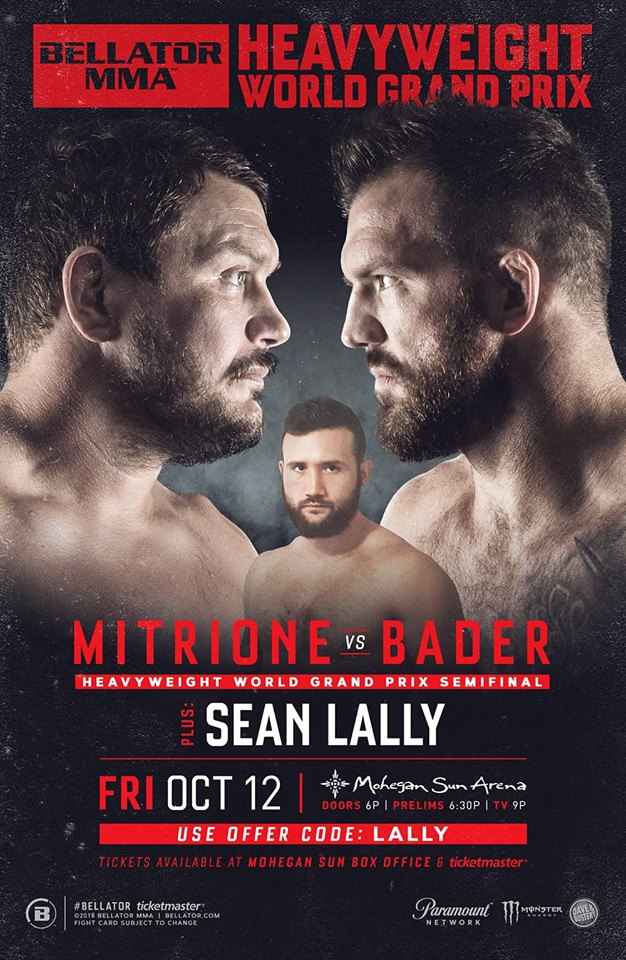
I feel good. I’m injury free, my weights on point. We’re actually fighting at 175 pounds; I fought at 170 in June. My weight is good, the cut shouldn’t be an issue. I have the ability to shed water weight very quickly, so the last 10 pounds will float right off me.
Q: A lot has been said about extreme weight cuts that fighters go through in MMA and how detrimental that can be to a fighter’s health. Are you in favor of introducing more weight classes into the sport as a way of protecting fighters?
A: Absolutely, I think that would be the best-case scenario. I’ve heard of guys cutting 30 pounds in 48 hours which is ridiculous. And I think it’s very dangerous too because when you’re dehydrated like that, not only is your body dehydrated, but you also don’t have as much cerebral fluid in your brain, in your skull. So you take a hit to the head and you don’t have as much of that cushion to absorb it. The extreme weight cuts are dangerous for a number of reasons.
Q: What’s your promotional situation at the moment? Your last fight was in the Contender series with the hope of being signed to the UFC. This time you’re on a Bellator card. Are you signed to anyone right now?
A: Yeah, so I’m basically a free-agent. I’m testing the waters in different promotions right now. Of course, my main goal is to get to the UFC. That’s always been the dream. That’s where the money’s at. That’s the dream I’ve been chasing. But this Bellator card is a great opportunity for me. I’ve got a one-fight deal at the moment which leaves my options open. If I go in and perform well, [Bellator] may offer me a contract and the UFC may say ‘hey we need you to fill in for a fight’ if someone’s been injured. Being committed to a contract wouldn’t allow me to do that.
Q: I saw a great picture of you and your father on your Instagram page [@theunpredictable.1] a while back. Has he had a big influence on your career?
A: Yeah for sure. My dad was in the Marines, so he was one of the many in my family who was a part of the military. And he was also a boxer back in the day, and he did some judo too; he’s just a tough guy in general. So, he was always supportive of me fighting. When I got started in MMA, I remember sparring with my dad at 16. He’s been at my fights since then and if I can have him walk out with me, I do. And he’ll definitely be at this next fight too.
Q: If I asked you to paint the perfect picture of what your career would look like in 5 years, what would you paint for me?
A: I don’t think like that because I like the unknown, I –
Q: Ah, so that’s why you’re nicknamed “The Unpredictable One?”
A: (Laughs) Yeah I like the unpredictable. I feel like for me to paint this perfect picture would lead to me eventually being disappointed or shutting out other opportunities. All I’ll say is: I wanna be in the UFC – and however, I get there, and whoever I gotta take out on the way, so be it.
Q: A final question before you go. How would you like to be remembered; not just as a fighter leaving his mark on the sport, but also as a man leaving his mark on the world?
A: I just wanna be remembered as someone who never quit, someone who followed their dreams. I have a 3-year-old daughter. I want her to see that if you continue to pursue what you love then you can become successful at it. It was 12 years ago when I said I wanted to be in the UFC. This past summer I had the first chance to make that happen, now I’m fighting in Bellator, so I’m still at it 12 years later.


